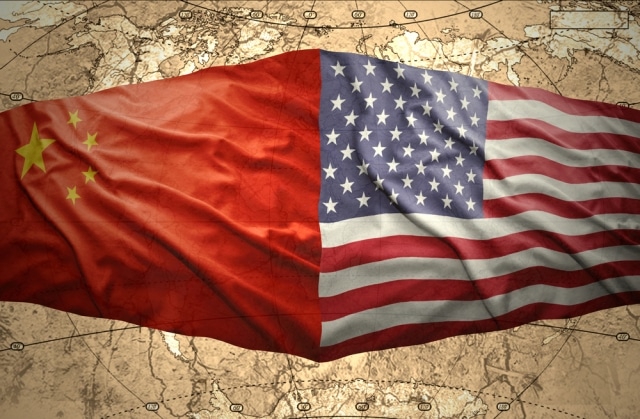The Obama Administration is pursuing an international climate agreement that would be “politically binding” but would not be a treaty requiring ratification by two-thirds of the U.S. Senate.
Meanwhile, China has announced it will create a national cap-and-trade program.
These two facts amount to a stunning juxtaposition. China, currently the world’s largest emitter of greenhouse gas pollution, is taking decisive action to lower its emissions, while the leader of the United States, historically the world’s largest climate polluter, must circumvent his own government to take even modest first steps towards dealing with climate change.
According to the latest Global Carbon Budget report, CO2 emissions rose 2.3% in 2013, with China responsible for 28% and the United States contributing 14%.
Emissions are projected to increase by another 2.5% in 2014, according to the report, which also notes that the world is on track for a temperature rise somewhere between 3.2 and 5.4 degrees Celsius over pre-industrial levels by 2100—well above the 2-degree mark scientists say we must limit warming to in order to avert the worst effects of climate change.
The New York Times reports that negotiators for the Obama Adminstration are calling an international agreement that bypasses the treaty ratification process in the Senate the only viable path forward:
Lawmakers in both parties on Capitol Hill say there is no chance that the currently gridlocked Senate will ratify a climate change treaty in the near future, especially in a political environment where many Republican lawmakers remain skeptical of the established science of human-caused global warming.
This is not the first time Obama has gone around Congress to take action on the climate. The centerpiece of President Obama’s Climate Action Plan uses authorities granted to the EPA under the Clean Air Act to limit carbon emissions on a state-by-state basis and requires states to come up with plans to achieve those cuts.
But even the Obama Administration admits that this type of measure is not, in and of itself, a solution to the climate crisis we’re facing.
“The point is, that this is a start,” White House science and technology advisor John Holdren recently told the House Science Committee. “The carbon-action plan is a start, and if we do not make a start, we will never get there.”
Fun fact: The hearing where Holdren made this statement was given the title “The Administration’s Climate Plan: Failure by Design” by the Republican-led House Science Committee. Any doubts as to the foregone conclusion the committee had already reached prior to the hearing were probably erased when Rep. Larry Bucshon (R-Indiana), in a moment of profound projection, told Holdren that he does not believe in peer-reviewed scientific literature because all climate scientists are just in it for the money.
To be fair, when you have an air pollution problem as bad as coal-hungry China has, it’s probably much easier to dismiss anti-scientific views like Rep. Bucshon’s.
“So much [of China’s] air pollution is from coal, that you can’t deal with air pollution without dealing with coal,” Jake Schmidt, international director for the Natural Resources Defense Council, told DeSmogBlog. This, more than anything else, Schmidt says, is driving China’s initiative to rein in emissions. “In China, there’s no way to hide the fact that coal is driving air pollution. It’s sunk in that they can’t just keep building out the coal infrastructure the way they have in the past. They always knew the end was coming, but it’s pretty obvious the end is coming pretty quick.”
For the past two decades here in the United States, one of the most oft-repeated canards spouted by climate deniers is that nobody else is acting on the climate so why should we. Or that if the U.S. takes action, no other countries will, putting America at a competitive disadvantage.
But this is far from the truth, Schmidt says, pointing not just to China’s cap-and-trade program announcement but also the booming solar industry in India. “Countries are acting, and the question is, what kind of next steps are they going to take.”
As for whether or not China’s move puts pressure on the U.S. to take bolder action of its own, Schmidt is cautiously optimistic.
“It’s telling that they’re both trying to drive domestic action,” Schmidt says. “The reality is deniers in the United States can no longer say China isn’t moving ahead. It’s fine to run those ads in 1992, but in 2014 you look like you’re turning on your black and white TV while everyone else is in HD.”
Image Credit: Waving United States of America and Chinese flags on the background of the political map of the world by esfera / Shutterstock.com
Subscribe to our newsletter
Stay up to date with DeSmog news and alerts







